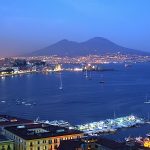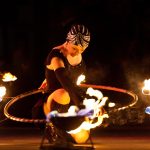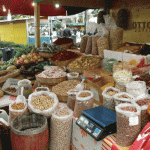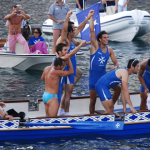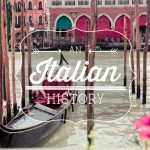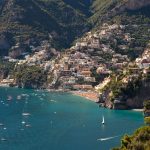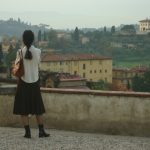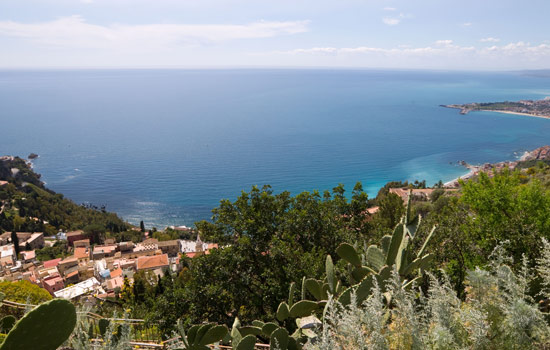
22 Nov 2012 My Sicily
My Sicily is a metaphor…Just like the title of the interview- book I wrote in 1979 with the author Leonardo Sciascia for Stock publications, which was translated into Italian by Mondadori.
I discovered Sicily in 1975. I had a meeting with Sciascia who has just agreed to become an “independent” candidate on the Communist party’s list for the municipal elections in Palermo. The news had caused great excitement in the editorial offices of the Nouvel Observateur: how could a critical, even sceptical writer suddenly throw himself into politics? And in Sicily, no less?
I booked my train journey, crossing the Straits of Messin overnight and, in the morning, from my sleeping car, I began to glimpse little houses with Arab-style roofs, palm-trees, contrasting landscapes. I felt a vague sense of violence in the air. But it was just the effect of the strong light and excessively luxuriant vegetation and, as I later realized, the effect of meeting some very unusual people.
Because every Sicilian is like a character in a novel. People who profess distrust about their private life but fill you with details about it at the first opportunity. At some point in their life, every Sicilian is forced to face a terrible dilemma: whether to be a coward or a hero. Yes, because the constant presence of the Mafia, not always dramatic but definitely
 constant, even in the smallest details of everyday life, forces them to appear not to see (i.e. to take the cowardly route), or to rebel, and choose to be a hero.
constant, even in the smallest details of everyday life, forces them to appear not to see (i.e. to take the cowardly route), or to rebel, and choose to be a hero.
This is the strange and fascinating destiny of these people who God has blessed with great riches, landscapes and cuisine, as well as a wonderful archaeological past, yet who find themselves having to confront dilemmas worthy of a Greek tragedy.
In fact, Greece is very present on this island, and to travel through Sicily is to travel into the heart of western civilization. You can breathe the atmosphere of this civilization in the towns and villages as well as in the open countryside, amidst the vast expanses of the former “latifondi”, it is in the air everywhere.
But let’s get back to Sciascia. I travelled by car to Racalmuto, the small town where he spent his summers, accompanied by a professor of literature from the University of Palermo. We arrived on the hillside of La Noce, surrounded by vineyards: a wonderful lunch awaited us (pasta with olives) and Sciascia began to talk about Paul Louis Courier, about Paris and the Hotel du Pont Royal where he stayed on his trips to the capital.
I immediately felt as though I was among friends, because France was an essential point of reference for the “illuminist” Sicilian. He also explained about his political involvement: he felt it was better to work alongside the party that was trying to change things rather than to fight against the island’s eternal immobility. He repeated a phrase from the “Gattopardo”, he wanted “to change everything so that nothing would change”.
It was on that day that I decided to write a book with Sciascia, a book that would sum up his Sicily, his intellectual engagement and his view of the world.
Obviously I have returned to the island many times, but the second important meeting I had was in the fall of 1984. The newspapers were full of the confessions of the Mafia “pentito”, Tommaso Buscetta, who was being interrogated by Judge Giovanni Falcone… I managed to arrange a meeting with the judge at the end of an autumn afternoon in the Court of Palermo.
I managed to arrange a meeting with the judge at the end of an autumn afternoon in the Court of Palermo.
When we met, Falcone regretfully informed me that he was unable fulfil the engagement because he had to go straight to the Ucciardone prison. When I suggested we met for supper, he replied “It is not very hygienic”. So I suggested that we leave together for Rome the next day on the 7 a.m. flight, and we could talk then. As chance would have it, during the flight we were seated next to Marco Pannella, the radical party leader who, at the time, had been “flirting” with the “Pope” of Cosa Nostra, Michele Greco. So Falcone told me to go home and that he would call me later on that morning. I was extremely disheartened.
Around 12.30 p.m., a man from the Guardia di Finanza arranged to meet me on a street corner. He picked me up in a car and, after many detours, drove me to the barracks of the Guardia di Finanza. We went down some steps and, in a basement that was pleasantly illuminated by firelight, I found Falcone sitting at a table, ready to greet me. I couldn’t believe my eyes. A friendship was born that day which led me to write the book, “Cose di Cosa Nostra” in 1991, just six months before his death.
I have recounted these episodes to help people understand that my encounters with Sicily have, first and foremost, been encounters with Sicilians, and that these encounters have always been extremely romantic, fantastic, filled with surprises and absolutely fascinating. Sicilians seem to live as though they are in a novel. They are unforgettable people. It is no coincidence that the greatest Italian novelists come from this island.
For this reason, my approach to Sicily, with its beautiful landscapes, wonderful products and monuments, is mostly concerned with the people who live in this extreme point of western civilization, in close contact with the Arab world, where the dialogue between rationality and irrationality is dramatically present every day. My Sicily is a metaphor for reason.




